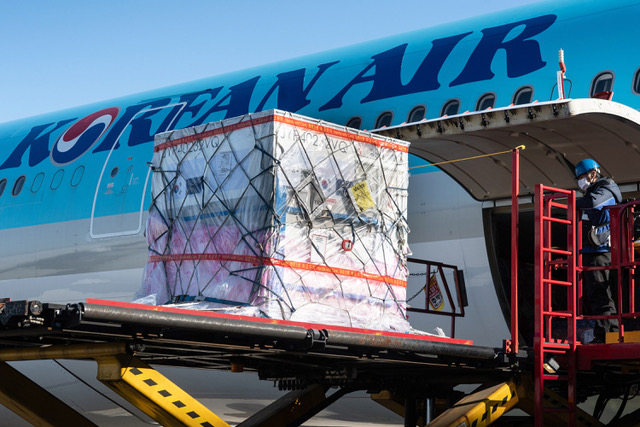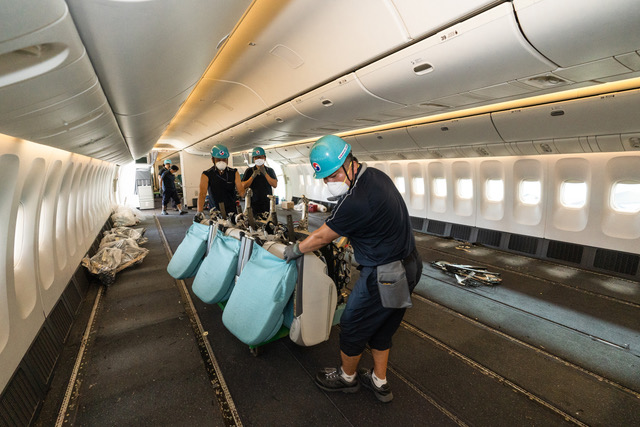Korean Air operates 10,000 cargo-only passenger flights

Korean Air has operated 10,000 cargo-only passenger flights as of August 1. The airline launched its first cargo-only passenger flight on the Incheon-Ho Chi Minh route in March 2020, and has operated these flights on 65 routes to North America, Europe, Southeast Asia, China and Japan, transporting 400,000 tons worldwide. Approximately 40 tons are transported per round trip (20 tons one-way).
After most flights were suspended following the COVID-19 outbreak, Korean Air began operating cargo-only passenger aircraft. Beginning with 38 of these flights in March last year, the airline currently operates more than 800 cargo-only flights a month.
Through close cooperation with the Ministry of Land, Infrastructure and Transport and aircraft manufacturers, Korean Air has increased its cargo capacity by utilizing overhead bin space, using “cargo seat bags,” a safety device that can load cargo on passenger seats, and removing seats to enable cargo floor loading.
Korean Air is also actively responding to emergency pandemic related demands, and the cargo-only flights are mainly transporting pandemic relief goods such as COVID-19 diagnostic kits, protective clothing and masks. More than 100 cargo-only aircraft were deployed to India, where COVID-19 cases were soaring, to transport pandemic relief supplies, and a charter flight was operated to deliver COVID-19 diagnostic kits to Baltimore-Washington International Airport, U.S, in April 2020. Korean Air is currently transporting pandemic related supplies to Indonesia, Singapore, Germany and Canada.
In the process of transporting pandemic relief products, Korean Air recorded its longest-distance flight – cargo flight KE8047, which flew 13,405 km for a duration of 14 hours and 42 minutes from Incheon Airport to Miami Airport (U.S.) on June 12, 2021. To meet urgent demand, the airline continues to increase its capacity even if it means flying on new routes.
Cargo-only flights have also been contributing to resolving recent logistics challenges faced by many companies struggling due to shipping supply shortages. Korean Air has increased its cargo capacity to support urgent export and import logistics by maximizing its flight operations through using available passenger aircraft. While the airline’s cargo volume transported using passenger aircraft sharply dropped to 16,000 tons per month right after the COVID-19 outbreak, from 2021, this number has recovered to more than 40,000 tons per month, close to pre-pandemic levels.
Meanwhile, Korean Air is actively supporting logistics for small- and medium-sized consignors. Last year, the airline operated charter flights for small- and medium-sized companies exporting goods to Indonesia and Japan in cooperation with the Ministry of Trade, Industry and Energy and Korea International Trade Association. The carrier has also secured space for small- and medium-sized companies on regular cargo flights bound for Los Angeles, U.S this year.
“We expect cargo-only passenger flights to play a more vital role in the second half of the year, when the volume of import and export cargo typically increases,” said a Korean Air representative. “As a Korean flag carrier, Korean Air will continue its efforts to create a stable logistics environment for imports and exports by actively securing cargo capacity.”

